Who is here? 1 guest(s)
|
Conioscinella zetterstedti
|
|
| hedy2411 |
Posted on 11-08-2022 21:59
|
|
Member Location: Posts: 5225 Joined: 20.11.09 |
Who know's the name of this small fly with short wings..? Found 7-5-2018 near the beach in south of Holland. Edited by hedy2411 on 01-09-2022 20:17 |
|
|
|
| weia |
Posted on 11-08-2022 22:19
|
|
Member Location: Posts: 360 Joined: 10.07.11 |
Chloropidae |
|
|
|
| Jan Maca |
Posted on 12-08-2022 07:59
|
|
Member Location: Posts: 1113 Joined: 25.03.10 |
Aphanotrigonum brachypterum? |
|
|
|
| weia |
Posted on 12-08-2022 17:17
|
|
Member Location: Posts: 360 Joined: 10.07.11 |
That's not (yet) on the Dutch species list, but the name sounds good. |
|
|
|
| hedy2411 |
Posted on 14-08-2022 10:37
|
|
Member Location: Posts: 5225 Joined: 20.11.09 |
Jan and Weia, thank you for your reactions! Nice that you know it Jan! It had very small wings... Regards, Hedy |
|
|
|
| von Tschirnhaus |
Posted on 19-08-2022 11:38
|
|
Member Location: Posts: 429 Joined: 04.11.07 |
Chloropidae: Conioscinella zetterstedti Andersson, 1966, in earlier times identified by many authors as "C. brachyptera (Zetterstedt, 1848)" but not identical with Aphanotrigonum brachypterum (Zetterstedt, 1848). A typical species in marine dunes covered with Ammophila arenaria; Europe until Siberia and Kamchatka, North America. Mass occurrence in Barber traps among Ammopgila tussocks. A detailed article: Brauns, A. 1938: Die Flügelrückbildung bei der Strandfliege Conioscinella brachyptera Zett. (Diptera; Chloropidae) und die Beziehungen zur Ausbildung der Flügelsinneskuppeln. - Zoologischer Anzeiger 123(10-12): 281-295. |
|
|
|
| John Carr |
Posted on 19-08-2022 13:22
|
|
Member Location: Posts: 9773 Joined: 22.10.10 |
Also, Wheler, Terry A. 1994. Conioscinella zetterstedti Andersson (Diptera: Chloropidae), a chloropid fly with polymorphic wing reduction, new to the Nearctic and central Palaearctic regions. Canadian Entomologist 126(6):1377-1381. https://doi.org/1...t1261377-6 "Although previously known only from supralittoral areas on the shores of the North and Baltic seas, collection data in the Nearctic and central Palaearctic regions indicate that C. zetterstedti may be abundant in various decay communities including peatlands, swamps, lake shore debris, mammal nests, forest leaf litter, and around the bases of vegetation." |
|
|
|
| hedy2411 |
Posted on 01-09-2022 20:20
|
|
Member Location: Posts: 5225 Joined: 20.11.09 |
Von Tschirnhaus and John: Thank you for your added reactions! I changed the name... Regards, Hedy |
|
|
|
| Jump to Forum: |


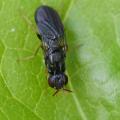



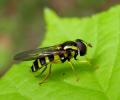
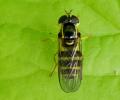

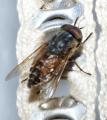
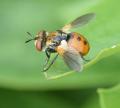



 but don't see the image in the post.
but don't see the image in the post.
